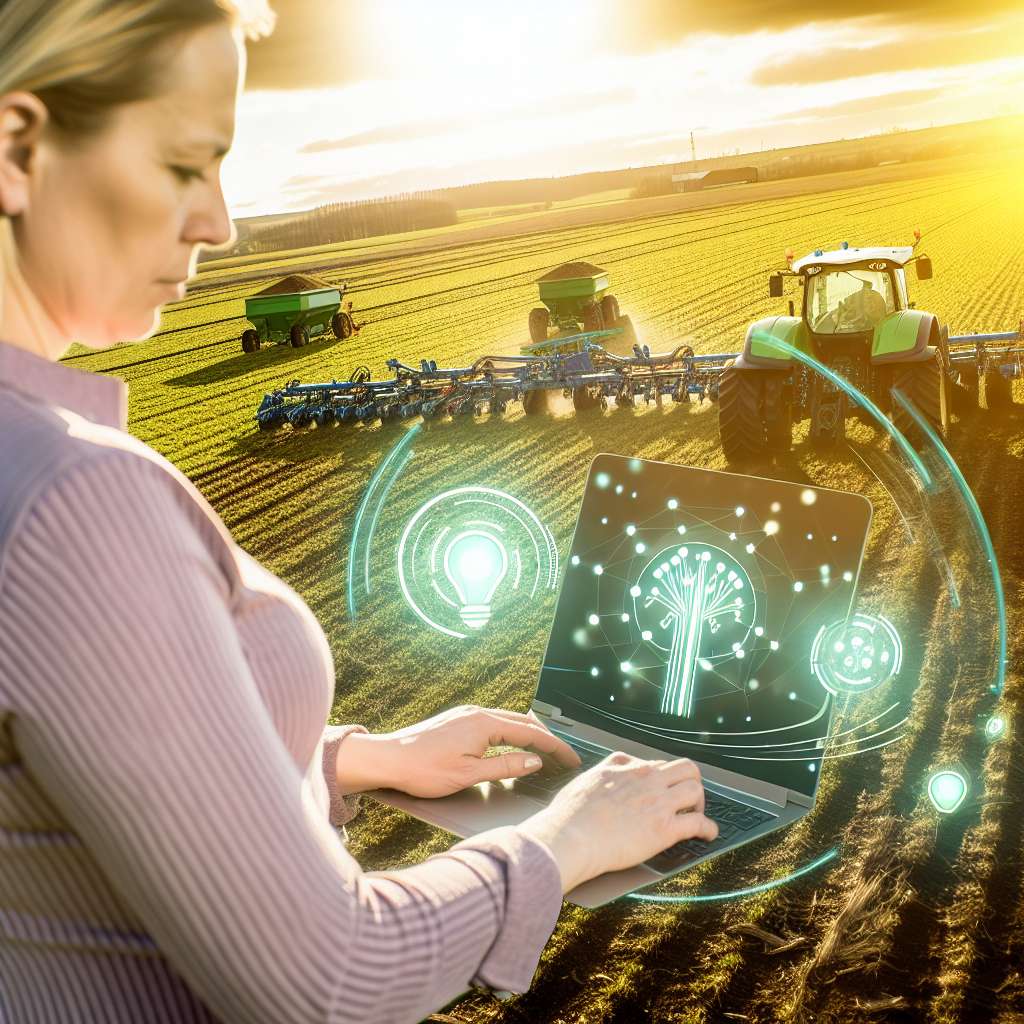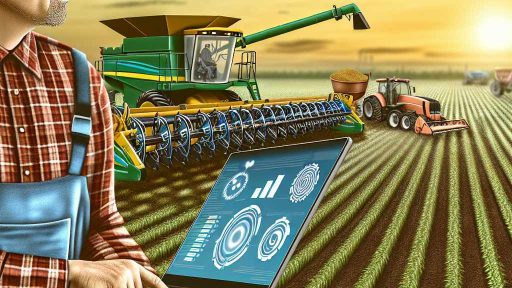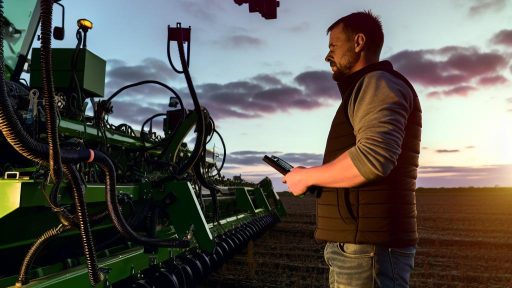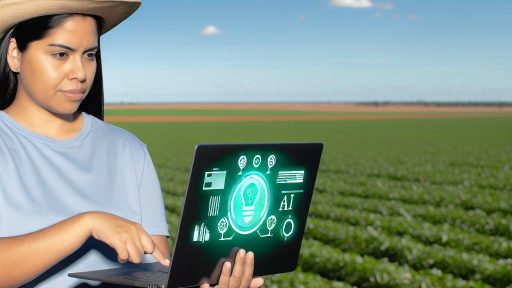Introduction to Precision Farming and Its Significance
Precision farming revolutionizes the agricultural landscape.
This innovative approach utilizes data-driven techniques.
Farmers can enhance productivity and sustainability.
Technologies such as GPS and IoT empower farmers.
They enable real-time monitoring of crop and soil conditions.
As a result, farmers make informed decisions quickly.
Understanding Precision Farming
Precision farming focuses on maximizing yield and minimizing waste.
This method optimizes field-level management practices.
Farmers target specific areas for planting and fertilizing.
By doing so, they use resources more efficiently.
These techniques reduce environmental impact significantly.
Benefits of Precision Farming
The benefits of precision farming are substantial.
First, it increases yield through targeted intervention.
Second, it lowers input costs by reducing waste.
Finally, it promotes environmental stewardship.
Transform Your Agribusiness
Unlock your farm's potential with expert advice tailored to your needs. Get actionable steps that drive real results.
Get StartedSuch practices can mitigate soil degradation and pollution.
The Role of Artificial Intelligence
Artificial intelligence plays a pivotal role in precision farming.
AI analyzes vast amounts of data efficiently.
This analysis helps in predicting crop performance accurately.
Moreover, AI-powered tools automate many farming tasks.
Such automation allows farmers to focus on strategic decisions.
Challenges in Implementation
Despite its advantages, precision farming faces challenges.
For instance, the initial investment can be high.
Farmers may struggle with technology adoption.
Additionally, data privacy concerns can hinder progress.
Nonetheless, education and training can overcome these obstacles.
Overview of Artificial Intelligence Technologies in Agriculture
Introduction to AI in Agriculture
Artificial intelligence is rapidly transforming agriculture.
Farmers increasingly adopt AI to optimize their operations.
This technology enhances productivity and sustainability.
Consequently, food production can meet growing demands.
Types of AI Technologies Used
Various AI technologies serve the agriculture sector.
These include machine learning, computer vision, and robotics.
Each technology plays a specific role in farming practices.
Machine Learning
Machine learning analyzes data patterns to predict outcomes.
Farmers use it to optimize planting times and crop yields.
Additionally, it assists in pest management strategies.
Computer Vision
Computer vision enhances monitoring of crops and livestock.
Drones equipped with cameras provide real-time data.
Farmers can detect issues quickly and respond effectively.
Showcase Your Farming Business
Publish your professional farming services profile on our blog for a one-time fee of $200 and reach a dedicated audience of farmers and agribusiness owners.
Publish Your ProfileRobotics
Robotic systems automate various farming tasks.
These tasks include planting, harvesting, and weeding.
Such automation reduces human labor and increases efficiency.
Benefits of AI Adoption
AI contributes several benefits to agriculture.
First, it enhances productivity through data-driven insights.
Second, it improves resource management, reducing waste.
Moreover, it supports sustainable farming practices.
Challenges of Implementing AI
Despite its benefits, AI adoption faces several challenges.
Data privacy and ethical concerns are significant issues.
Additionally, farmers may lack the necessary technical skills.
Therefore, addressing these challenges is crucial for success.
Future Trends in AI and Agriculture
The future of AI in agriculture appears promising.
Continued advancements will improve accuracy and efficiency.
Furthermore, integration with IoT devices will enhance data collection.
This evolution will likely lead to smarter farming solutions.
Benefits of Integrating AI into Precision Farming Practices
Improved Crop Management
AI enhances crop management through data analysis.
Farmers can utilize AI to monitor plant health effectively.
This technology provides real-time insights into crop growth.
Consequently, farmers can make timely decisions regarding irrigation and fertilization.
Enhanced Resource Efficiency
AI helps optimize resource use on farms.
For instance, it enables precise water application based on soil moisture data.
This method minimizes water waste while maximizing crop yield.
Moreover, AI can analyze nutrient requirements for different crops.
As a result, farmers can apply fertilizers more judiciously.
Reduced Operational Costs
Integrating AI can lead to lower operational costs for farmers.
Automation reduces the need for manual labor on the farm.
This efficiency translates into savings on labor expenses.
Furthermore, farmers can reduce fuel costs by optimizing equipment use.
AI-guided machinery enhances efficiency in tasks like planting and harvesting.
Predictive Analytics
Predictive analytics is a significant advantage of AI in farming.
AI algorithms can forecast weather patterns and yield outcomes.
This predictive capability allows farmers to plan better for the future.
By anticipating conditions, they can adapt farming techniques accordingly.
Such foresight enables better risk management and increased profitability.
Better Pest and Disease Management
AI plays a crucial role in pest and disease identification.
Using image recognition technology, AI can detect issues early.
As a result, farmers can implement targeted interventions swiftly.
This approach minimizes crop loss and increases overall yield.
Data-Driven Decision Making
Integrating AI promotes data-driven decision-making on farms.
Farmers can analyze vast amounts of data quickly and accurately.
Showcase Your Farming Business
Publish your professional farming services profile on our blog for a one-time fee of $200 and reach a dedicated audience of farmers and agribusiness owners.
Publish Your ProfileThey can make informed choices based on historical and real-time data.
Moreover, this leads to more strategic long-term planning.
Consequently, farms become more resilient to changing market conditions.
You Might Also Like: Enhancing Soil Health with IoT-Based Monitoring Tools
Case Studies of Successful AI Applications in Precision Agriculture
Introduction to AI in Precision Farming
Precision agriculture has transformed farming operations significantly.
AI technologies have played a crucial role in this transformation.
Farmers use AI for better decision-making and higher productivity.
Crop Monitoring with Drones
Drones equipped with AI analyze crop health effectively.
These drones capture high-resolution images of fields.
Farmers use this data to identify stressed plants early.
PrecisionHawk illustrates this with their drone solutions.
They provide farmers with actionable insights to optimize yields.
Soil Management through AI Analysis
AI technologies help farmers analyze soil health precisely.
Agricultural companies like Trimble develop such AI solutions.
These tools predict nutrient needs and recommend inputs.
As a result, farmers improve soil quality and productivity.
Pest Detection Using Machine Learning
Machine learning facilitates early pest detection.
Companies like Taranis offer AI-powered pest monitoring systems.
Their AI analyzes images captured from field sensors.
Farmers receive alerts about potential pest threats instantly.
This approach minimizes pesticide usage and saves costs.
Yield Prediction Models
AI models predict crop yields based on historical data.
Companies such as Ag Leader create sophisticated algorithms for this.
Farmers can plan their planting and harvesting activities better.
Consequently, they optimize resource allocation and reduce waste.
Case Study: EcoRobotix
EcoRobotix has developed an AI-driven weeding robot.
This robot identifies and removes weeds autonomously.
It uses less herbicide compared to traditional methods.
Farmers increase profits while maintaining environmental standards.
Case Study: Blue River Technology
Blue River Technology implements AI for smart spraying.
Their system targets weeds and applies herbicides selectively.
This reduces chemical usage significantly and improves sustainability.
Farmers experience considerable cost savings as a result.
Future Trends in AI and Precision Agriculture
The integration of AI in agriculture continues to grow rapidly.
Farmers will leverage more advanced AI tools for efficiency.
These tools will enhance sustainability and ensure food security.
Innovations in AI will lead to a new era of farming practices.
Find Out More: IoT Security Considerations for Agricultural Systems
Challenges and Limitations of Using AI in Farming
Data Quality and Availability
The effectiveness of AI relies on high-quality data.
Farmers often face challenges in data collection.
Showcase Your Farming Business
Publish your professional farming services profile on our blog for a one-time fee of $200 and reach a dedicated audience of farmers and agribusiness owners.
Publish Your ProfileInaccurate or incomplete data can lead to poor AI decisions.
Many rural areas lack adequate data infrastructure.
Consequently, farmers may struggle to generate actionable insights.
Costs and Accessibility
Implementing AI technology can be expensive.
Small-scale farmers frequently lack the necessary financial resources.
This limits their ability to adopt modern technologies.
Moreover, ongoing maintenance and updates add to costs.
Consequently, many farmers feel excluded from AI benefits.
Technological Complexity
AI tools can be complex and difficult to use.
Farmers may require specialized training to operate them.
This presents a barrier for many individuals in the industry.
The learning curve can be steep for less tech-savvy users.
As a result, some farmers may avoid using AI altogether.
Integration with Existing Systems
AI must work seamlessly with current farming practices.
Integration issues can hinder the effectiveness of AI solutions.
Additionally, legacy systems may not support new technologies.
This can lead to incompatibility and reduced productivity.
Efforts to integrate AI require careful planning and investment.
Privacy and Ethical Concerns
AI implementation raises significant privacy issues.
Data collection can lead to concerns over surveillance.
Farmers may worry about how their information is used.
Ethical considerations further complicate AI adoption.
Balancing innovation and farmer rights is crucial for success.
Discover More: Renewable Energy Solutions Transforming Modern Agricultural Operations

The Role of Data Analytics in Precision Farming with AI
Understanding Data Analytics in Agriculture
Data analytics plays a crucial role in modern agriculture.
This technology helps farmers make informed decisions.
By analyzing large amounts of data, farmers can identify patterns.
These patterns can lead to improved crop yields and resource management.
Collecting Relevant Data
Farmers gather data from various sources.
Sensors, drones, and satellite imagery provide valuable insights.
Soil health, moisture levels, and weather conditions are key data points.
This data helps farmers monitor their fields effectively.
Data-Driven Decision Making
AI algorithms transform raw data into actionable insights.
Farmers apply these insights to optimize irrigation and fertilization.
Moreover, they can predict pest infestations before they occur.
This proactive approach minimizes crop loss and boosts profits.
Enhancing Precision with AI
Precision farming relies heavily on AI technologies.
Machine learning models analyze past agricultural data.
These models can forecast future agricultural trends accurately.
As a result, farmers can plan better for upcoming seasons.
Showcase Your Farming Business
Publish your professional farming services profile on our blog for a one-time fee of $200 and reach a dedicated audience of farmers and agribusiness owners.
Publish Your ProfileReal-Time Monitoring and Alerts
Data analytics provides real-time monitoring of farm conditions.
This capability helps farmers respond promptly to changing situations.
Alerts can notify farmers about adverse weather or pest activity.
This swift action can protect crops and mitigate losses.
Continuous Improvement through Feedback
Farmers can use analytics for continuous improvement.
Feedback loops help optimize farming practices over time.
Farmers analyze outcomes to refine their strategies.
This iterative process enhances both efficiency and sustainability.
Learn More: Exploring Controlled Environment Agriculture Technologies for Farmers
Future Trends and Innovations in AI-Driven Precision Agriculture
Enhanced Data Analytics
AI will revolutionize data analytics in agriculture.
Farmers will utilize big data to make informed decisions.
Advanced algorithms will interpret diverse datasets swiftly.
This technology will lead to optimized yields and resource use.
Automated Machinery and Robotics
Robotics will transform farm operations significantly.
Automated tractors and drones will streamline planting and harvesting.
These machines will perform tasks with precision and efficiency.
As a result, labor costs and human error will decrease.
Remote Sensing Technologies
Farmers will use remote sensing to monitor crop health effectively.
AI-powered sensors will collect real-time data from fields.
This technology will help detect issues like pests and diseases early.
Consequently, farmers can act quickly and mitigate losses.
Smart Irrigation Systems
AI will drive smart irrigation solutions for improved water management.
Intelligent systems will assess soil moisture and weather conditions.
Farmers can irrigate their crops precisely when needed.
This method will conserve water and enhance crop quality.
Decision Support Systems
AI will enhance decision support systems for farmers.
These systems will analyze various data points to provide insights.
Farmers can make strategic decisions based on AI recommendations.
This innovation will lead to better resource allocation and risk management.
Sustainable Practices Integration
AI will promote sustainable agricultural practices greatly.
Farmers will use AI to implement crop rotation and diversity.
This approach will restore soil health and biodiversity.
Furthermore, it can reduce chemical dependence in farming.
Collaborative Platforms and Networks
Farmers will connect through AI-powered collaborative platforms.
These platforms will allow sharing of best practices and resources.
Collaboration can lead to innovation and knowledge exchange.
As a result, farming communities will strengthen their resilience.
Best Practices for Farmers to Adopt AI Technologies
Understanding AI in Agriculture
AI technologies offer numerous benefits to modern farming practices.
Farmers should understand the potential applications of AI.
These applications range from predictive analytics to automated equipment.
Showcase Your Farming Business
Publish your professional farming services profile on our blog for a one-time fee of $200 and reach a dedicated audience of farmers and agribusiness owners.
Publish Your ProfileAdditionally, AI can improve crop management and yield optimization.
Implementing Data Analytics
Data analytics helps farmers make informed decisions.
It is essential to collect and analyze various data types.
Farmers can use weather forecasts and soil quality data.
Monitoring crop health and market trends enhances strategic planning.
Investing in IoT Devices
IoT devices significantly enhance precision farming.
Sensors can monitor soil moisture and temperature regularly.
Using drones provides aerial imagery for assessing crop health.
Farmers should invest in reliable and advanced IoT technology.
Training and Skill Development
Education is crucial for effective AI adoption in agriculture.
Farmers must undergo training to understand AI tools.
Workshops and online courses offer valuable insights and skills.
Moreover, partnering with tech companies can provide necessary resources.
Adopting Automation
Automation can streamline various farm operations.
Using autonomous tractors saves time and labor costs.
Implementing robotic systems for planting and harvesting increases efficiency.
Farmers should evaluate their processes to identify automation opportunities.
Collaboration with Technology Providers
Collaborating with tech companies accelerates AI integration.
Farmers should seek partnerships that align with their goals.
These partnerships often enable access to the latest innovations.
Furthermore, they can provide ongoing support and maintenance.
Continual Assessment and Adaptation
Farmers must continually assess the effectiveness of AI tools.
This assessment ensures that technologies meet evolving needs.
Adapting to feedback is crucial for maintaining productivity.
Regularly updating practices will lead to long-term success.
Additional Resources
Chairwoman Stabenow Statement at Hearing on Agricultural …
Enhancing precision agriculture: A comprehensive review of …




